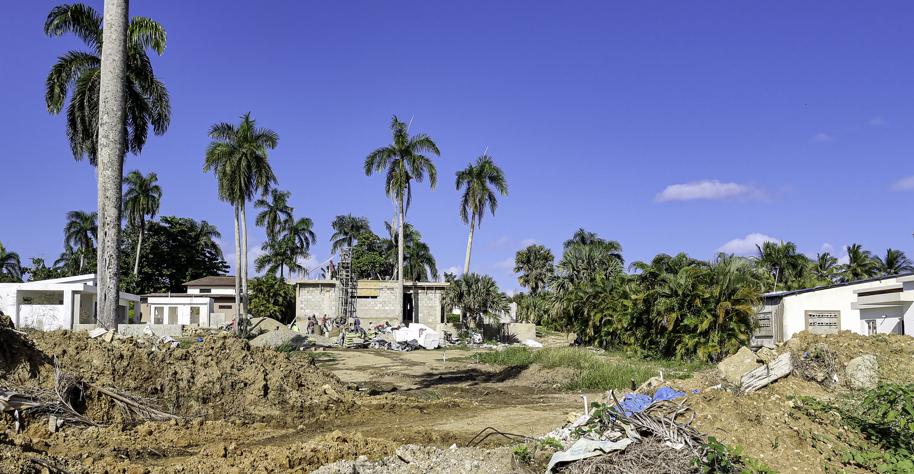CRA assessed $2.7 billion in additional tax and penalties from 2015 – 2023, including $1.4 billion in unpaid taxes in Ontario and $1.3 billion in British Columbia real estate sector
Ontario and British Columbia (B.C.) real estate are proving lucrative for the CRA. The agency identified $426 million in additional tax and penalties related to transactions in the two provinces’ real estate sectors during the 2022 – 2023 fiscal year. Interestingly, CRA identified $927 million in unpaid taxes over 8 years of tax audits targeting B.C. real estate, more than 5 times the amount in Ontario ($178 million), which has 3 times B.C.’s population. The CRA declined to say how and which categories the $957 million broke into — for example, how much was related to property flippers or developers or non-residents — citing the need to protect taxpayer information and maintain “the integrity of our risk assessment system.”
CRA tax audits growing in B.C.
The number of income tax-related audits CRA conducted in B.C. real estate increased by almost 10 times between the 114 audit files opened in the 2015 fiscal year and the 1,089 opened in 2023
There has been a corresponding boom in what the agency calls “audit assessments,” meaning the combined value of unpaid taxes still owing and penalties levied. Income tax-related audit assessments related to B.C. real estate averaged $6.4 million annually for the two fiscal years between 2015 and 2017 and shot up to an average of $155.1 million annually for the two fiscal years between 2021 and 2023, a 2,300 per cent increase.
The CRA increased its focus on non-compliance in major centers such as the Greater Toronto Area (G.T.A.) and B.C.’s Lower Mainland beginning in 2015. CRA has found a “disproportionate amount of non-compliance” in Canada’s largest metropolitan centers, with Metro Vancouver “identified as an area that requires our unique attention,” said Jason Charron, director general of CRA’s compliance programs branch, recently. “We’re continuing to focus on the Lower Mainland of B.C. where we know there’s non-compliance.”
The cumulative value of additional tax and penalties assessed from April 2015 to March 2023 stands at $2.7 billion from around 75,000 total tax audits. In Ontario, CRA assessed $1.4 billion in unpaid taxes and penalties in the real estate sector between 2015 – 2023. B.C., which has about a third of Ontario’s population, had almost the same amount of tax non-compliance identified over the same period: $1.3 billion. Although the total value of unpaid taxes and penalties found in B.C. and Ontario was similar, the nature of non-compliance was markedly different in the two provinces. In Ontario, most non-compliance identified by the CRA in real estate was related to unpaid GST and HST on new homes or inappropriately claimed rebates on those taxes. In B.C., most of the non-compliance related to income tax.
In 2019, the federal government boosted the CRA’s efforts, pledging $50 million over five years to create a real estate task force, plus $10 million annually on an ongoing basis.
According to the CRA’s data, almost 53,000 tax audit files were related to Ontario claims for GST/HST rebates available on new or significantly renovated homes. Together with a further 6,000 rebate audits conducted in B.C., these files have generated more than $600 million in combined assessments and penalties since 2015.
When a buyer intends to flip a new or significantly renovated property, the CRA notes the property may be ineligible for a GST/HST rebate, known as the new housing rebate. Meanwhile, taxpayers whose primary residence is outside the country would not qualify for the new housing rebate, as the property would be a secondary place of residence.
Canada’s 2019 federal budget included $50 million over five years for the CRA to create a real estate task force, with specialized audit teams. In April of 2024, the 2024 budget boosted that funding to $73 million for the next five years.
The CRA reported that since April 2015, 3,432 penalties amounting to $336 million were applied in real estate cases, representing 4.6% of the 74,699 total audit cases for the period.
The Income Tax Act allows the CRA to apply a penalty equal to 50% of the avoided tax if the taxpayer knowingly makes a false statement when filing their return. Courts have consistently held that CRA must prove a penalty is warranted – but that doesn’t always stop the agency from applying the penalties in the first place. About $37 million in penalties were assessed in the year of 2023 in total, meaning about 17 per cent of the year of 2023 assessments (about $74 million of the $426 million) was from audits where tax evasion was determined – although not necessarily proven, should a person appeal in court.
The $426 million identified by CRA audits in the year of 2023 matched the figure assessed for 2021 – 2022 but was down from the 2019 – 2020 peak of $527 million. David said this figure could rise again, noting that the COVID-19 pandemic caused the CRA investigators to work at reduced capacity or be reassigned to other projects, including misuse of the Canada Emergency Wage Subsidy.
The CRA says confidentiality laws prevent the release of information about the audits, but sent a written statement that said, in general, the income tax related non-compliance included: The CRA focuses on these 10 areas in its real estate audits
- Situations where a taxpayer acquired an expensive home without a clear reported source of income
- Profits from the quick flipping of homes that aren’t properly reported as taxable business income
- Unreported capital gain upon property sale
- Unreported capital gains tax on property sold by non-resident Canadians
- Unreported income earned outside of Canada
- Unreported GST/HST on the sale of a new home
- Improperly claiming GST/HST rebates
- Not classifying oneself as a land developer
- Property-sellers illegitimately claiming the principal residence exemption
- Non-compliance by realtors and developers.
PRO TAX TIP– It Is Important to Perform Due Diligence when buying or selling property in Canada
Buying a property from a non-resident of Canada brings a risk of non-payment of taxes. It is the responsibility of the buyer of the property to know whether the seller is a Canadian resident or a non-resident. Usually, the notaries or real estate lawyers who complete the legal documents associated with real estate transactions have the responsibility to complete these verifications.
A purchaser who buys a property from a non-resident seller should request, from the seller, a certificate of compliance issued by the CRA, prior to releasing the funds for the purchase. If not, the purchaser could be held liable to pay the CRA any unpaid income tax on behalf of the seller.
In terms of GST and HST (in Ontario) re-assessments, the CRA is largely looking at tax avoidance and evasion by homebuilders and developers.
Upon sale or lease of a new home, the GST/HST is payable at once on the fair market value of the home, including the land value, and the builder must remit that tax to the CRA.
For Canadian Taxpayers who filed their taxes inaccurately or did not file at all during the past years, the CRA has a program called VDP or Voluntary Disclosure Program to enable taxpayers to correct their tax returns filed in the past or to file for tax years where they have not filed at all.
Contact our expert Toronto Tax Lawyers for advice on what you can expect from your interactions with the CRA Voluntary Disclosure Program and find out if you qualify for it.
Frequently Asked Questions (FAQ)
Do I need to inform CRA about the sale of my personal residence?
All properties sold, including a principal residence sold in 2016 or later, must be reported to the CRA. The designation of a property as the principal residence is determined by completing Form T2091 (IND), Designation of a property as a Principal Residence by an Individual (Other Than a Personal Trust) and is reported on Schedule 3. For the sale of a principal residence, the CRA will allow the principal-residence exemption only if the individual reports the disposition and designation of their principal residence on their income tax return.
How does the CRA chooses a file for an audit?
The CRA chooses a file for an audit based on a risk assessment. The assessment looks at a number of factors, such as the likelihood or frequency of errors in tax returns or whether there are indications of non-compliance with tax obligations. The CRA also looks at the information it has on a file for the taxpayer and may compare that information to similar files or consider information from other audits or investigations.
How does the CRA do an audit?
A CRA auditor will contact a taxpayer by mail or phone, or both, to start the audit process and tell you the date, time and location of the audit.
Normally, an on-site audit takes place at a taxpayer’s residence, your place of business, or at taxpayer’s representative’s office. The auditor will present a taxpayer with a valid identification card upon arrival, and then start the audit. An on-site audit often allows question to be addressed quickly and can minimize delays in completing the audit.
If an audit is not done on-site, it will take place at the CRA office. The CRA makes use of its resources by centralizing the management of some audit files in particular CRA office locations. This means that a taxpayer may be assigned an auditor who is located outside of a taxpayer’s region. In that case, the auditor will ask you to bring or send any supporting documents for the audit.
Wherever an audit takes place, the auditor may need to make copies of your electronic records or borrow some of your documents. The auditor will give you a detailed receipt for any borrowed documents and return as soon as possible.
Disclaimer: This article just provides broad information. It is only up to date as of the posting date. It has not been updated and may be out of date. It does not give legal advice and should not be relied on. Every tax scenario is unique to its circumstances and will differ from the instances described in the article. If you have specific legal questions, you should seek the advice of a Canadian tax lawyer.



